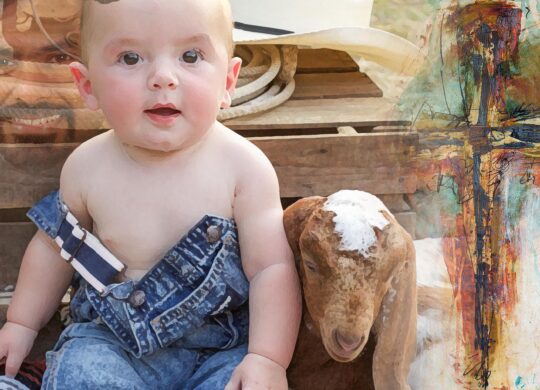Stink!

We all smell! Yes, we do.
The only question is: Do we smell good or bad?
In fact, there is even a disease code that dermatologists can bill: L75.0 for “bromhidrosis” (from the Greek: bromos, “stink” + hidros, “sweat” = stinky sweat) .
To a great extent, body odor has a genetic predisposition, but external factors also do play a role: gender, diet, health, medications or drugs consumed, etc. But researchers from the appropriately named Department of Aroma and Smell Research, Friedrich-Alexander-Universität Erlangen-Nürnberg (in Erlangen, Germany) decided to check out the influence of age on body odor. They published “Body Odor Samples from Infants and Post-Pubertal Children Differ in their Volatile Profiles” the other day in Nature Communications: Chemistry.
Their results? Not at all surprising: babies smell great; teenagers do not!
Said Scientific American:
Researchers characterized the chemical makeup of Essence of Teen and compared it with the smell composition of infants and toddlers. They found that, from both a qualitative and quantitative standpoint, children’s body odor takes a dramatically smelly turn after the onset of puberty.”
The scientists analyzed body odor samples from 18 infants and toddlers and 18 teenaged children. While the samples from the both contained pleasant, citrusy and soapy-/coriander-smelling aldehydes in the body odor samples from both age groups, in the underarm sweat of teens, however, there was a higher concentration of carboxylic acids—compounds that are associated with sharp, funky scents such as cut grass, cheese and goat musk. And some naturally occurring steroids with musk-like odors.
3-methylbutanoic acid (cheesy), octanoic acid (musty, coriander-like, fatty), and 4-ethyloctanoic acid (goat-like) had [higher levels] in the post-pubertal samples compared to the infant samples.”
Yup, teenagers stink. But it might have something to do with real life than just poor hygiene.
All these smelly compounds are created by the sebaceous glands of the skin (oil glands) that secrete sebum, an oily substance that helps protect our skin and keep our hair shiny and hydrated. The glands are functional just before birth and then mostly go dormant for years, before getting highly reactivated again around puberty.
When those sebaceous glands reactivate, they encounter all sorts of bacteria and bodily substances—think sweat and dead skin cells—that weren’t around so much during the early years of life. These additional interact and help break down sebum into the kind of smelly molecules of the characteristic teenage musk.
The authors of the article:
Baby odor facilitates bonding between parents and children. But that doesn’t last forever. Once children become teens and are no longer as reliant on their parents, becoming smellier to mom and dad can help them foster a degree of independence as they begin to strike out on their own.”
Said one wisecrack:
You can’t spell adolescent without ‘scent,’ after all.”
Perhaps there is value to being unable to smell?
Maybe not.
[The world’s] idols are silver and gold,
the work of human hands.
They have a mouth, but they cannot speak;
they have eyes, but they cannot see;
they have ears, but they cannot hear;
they have a nose, but they cannot smell;
[they have] their hands, but they cannot feel;
their feet, but they cannot walk;
they cannot make a sound with their throat.
Psalm 115:4–7
Notice the symmetry of the “they have …” sections: mouth, eyes (paired), ears (paired) // nose // hands (paired), feet (paired), throat: ABC//D//C’B’A’. “Nose” is at the center (D)—smell is important!
On the other hand, …
The ones who fear Yahweh, trust in Yahweh;
their help and their shield is He.
Psalm 115:11
Amen!
SOURCE: Nature Communications: Chemistry; Scientific American












 Abe Kuruvilla is the Carl E. Bates Professor of Christian Preaching at The Southern Baptist Theological Seminary (Louisville, KY), and a dermatologist in private practice. His passion is to explore, explain, and exemplify preaching.
Abe Kuruvilla is the Carl E. Bates Professor of Christian Preaching at The Southern Baptist Theological Seminary (Louisville, KY), and a dermatologist in private practice. His passion is to explore, explain, and exemplify preaching.
1 Comment
As always , your insights are a blessing, good sir.
marc , DTS